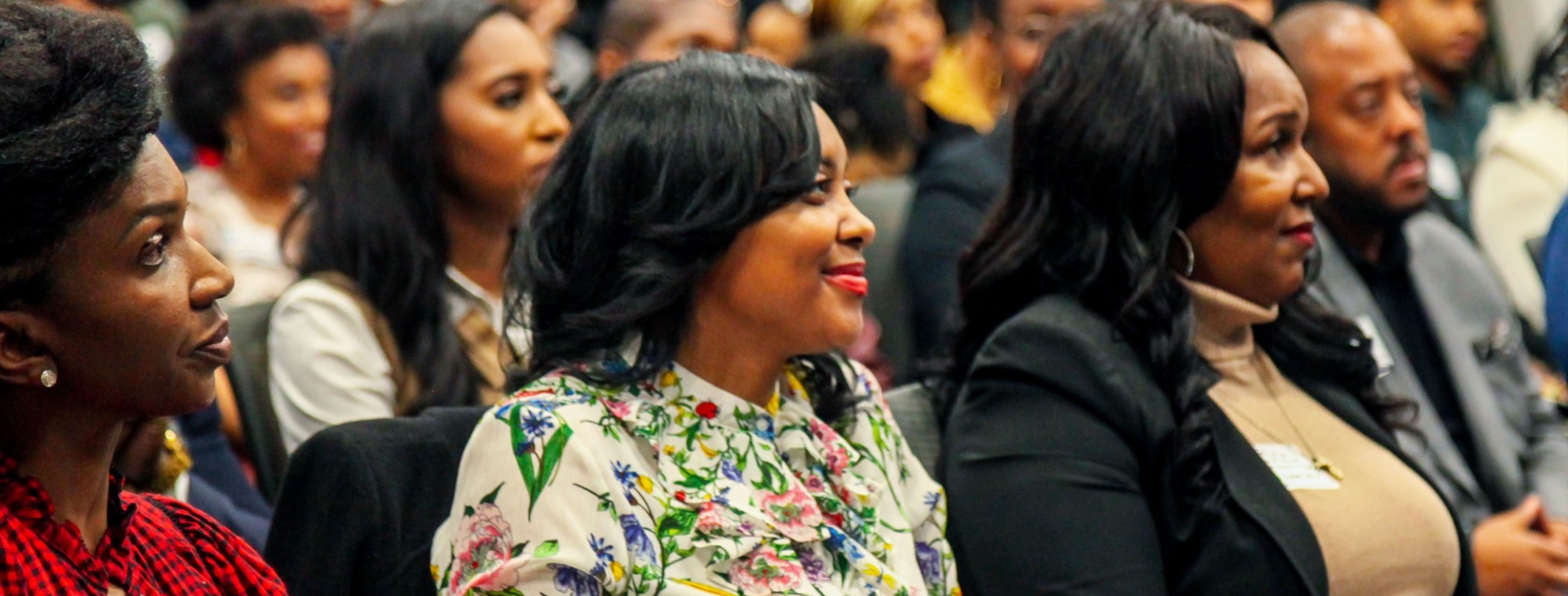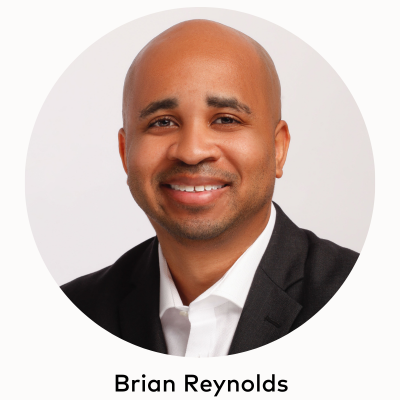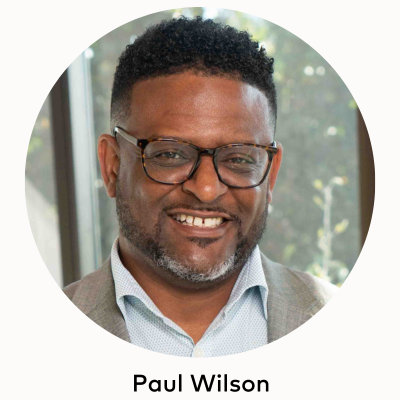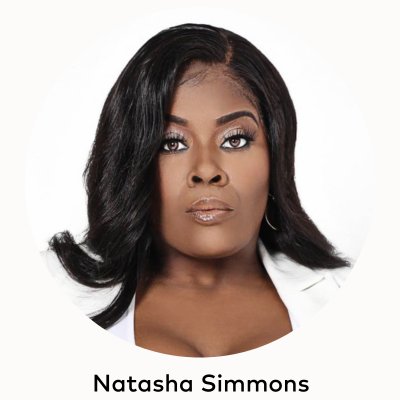In Atlanta, making sure Black-founded startups don’t stop
February 21, 2024 | By Christine Gibson
In the skin care aisle in a supermarket in Atlanta, Brian Reynolds had a career makeover.

He ran an international student exchange program for 12 years when COVID-19 hit, forcing him to pivot. He noticed that many of the young people he had been working with suffered from acne, and as he strolled past shelves of astringents and creams, he realized that there weren’t many products specifically for younger teens. So he founded a new company, Just for Teens, to create organic cleansers that are gentle yet effective for preteens and teenagers with sensitive, oily, acne-prone skin.
But even armed with reams of market research and a degree in Chinese and international business, Reynolds knew he was fighting an uphill battle. As a Black man, he didn’t see many people who looked like him in the consumer packaged goods industry and did not know where to begin. “A lot of entrepreneurs have a family member or resources who can provide them with advice, so they don’t have to get bumped and bruised to learn what pain feels like,” he says. “I’ve made mistakes in business and it’s $10,000 gone. If I learn a lesson, I’m paying for it up front.”
In March 2022, Reynolds attended an information session at the Russell Innovation Center for Entrepreneurs, a Black-owned business generator in Atlanta. Nearly a year later, RICE has helped him scale his operations for retail distribution. “RICE has cushioned my falls,” he says. “Now I’m learning on carpet and not concrete.”
Honoring a legacy in Atlanta
Part business generator and part innovation lab, RICE is the world’s largest center for Black entrepreneurs. It’s named in honor of Herman J. Russell, a Black construction magnate and philanthropist who transformed his father’s plastering service into a multi-state conglomerate that, by the time of his death in 2014, ranked as one of the largest minority-owned enterprises in America. He used his growing influence and wealth to fight for racial equality, integrating the Atlanta Chamber of Commerce and helping finance the civil rights movement.
Atlanta is a hub for Fortune 500 corporate headquarters and a growing fintech mecca, and it also boasts the highest share — 8.8% — of Black-owned businesses in the U.S. That diversity and entrepreneurial spirit is part of what has drawn Mastercard to the city, opening its first offices in Ponce City Market in October 2023 and offering a beachhead to its employees who live throughout the South.
And as part of its In Solidarity commitment to narrowing the racial wealth and opportunity gap, the Mastercard Center for Inclusive Growth awarded a $950,000 grant to RICE last year to support the organization’s work providing business education, mentoring and networking opportunities to Black entrepreneurs, working with companies in any industry, at every stage of development.

Despite Atlanta’s encouraging startup figures, there’s still plenty of work to be done. In 2020, Black people made up 14.2% of the U.S. population but only 2.4% of business owners with at least one employee. If the growth of Black entrepreneurship continues at its current rate, it won’t achieve parity with the Black population until the year 2279. RICE is working to change those statistics.
“For people born on the wrong side of the tracks, capital and connections are what’s missing,” says Paul Wilson, RICE’s vice president for innovation and entrepreneurship. “It’s information that’s shared not on websites but the golf course. It’s knowing the person who knows the person who knows the person.”
Finding RICE “was like walking into heaven,” says Natasha Simmons, the CEO and creative director of Yacht Club Access, a luxury swimwear and resort wear brand.

Already a veteran of the fashion industry from her work as a model, Simmons knew she would need a broader perspective to take her designs from Instagram to runways around the world. “I knew the road wasn’t going to be easy, but I had to try. I had been beating the pavement, trying to learn everything I could,” she says. “Then I went to a RICE orientation and they started equipping me with exactly what I needed to know.”
She was soon introduced to manufacturers in Colombia and got approval to sell on a major national retailer’s marketplace, accomplishing her year-two goals within four months.
Building on education and Big IDEAS
Black entrepreneurship is on the rise, but sustaining those businesses can be as difficult as starting them. Black women like Simmons are the fast-growing demographic of small business owners, yet they own only a tiny percentage of businesses that make it past the five-year mark.
That’s why continuing education is the program’s cornerstone, Wilson says. Through in-person group sessions, real-world experiences, and online content, RICE helps entrepreneurs master what it takes to run a business throughout its life cycle, from initial concept to global brand. Its curriculum is structured in five stages — inspire, develop, execute, accelerate and scale, hence its name, Big IDEAS — that mimic undergraduate and graduate course levels. Entrepreneurs enter at the stage most relevant to their development and progress at their own pace.
“It’s not just eight weeks and you’re done,” Wilson says. “That’s not enough time to teach anybody to be truly successful. The first stage may be eight weeks, but you go on to the next stage, then the next. We want you to get ready for your next opportunity, your next loan, your next customer.”
Reynolds had more than a decade of experience as a CEO but still had blind spots. “It was like the difference between learning how to drive my first car and learning how to drive a Ferrari,” he says. “Big IDEAS elevated my experience.” The curriculum’s emphasis on organizational and marketing plans, as well as the assistance in perfecting the documents buyers want to see, has helped him grow his business from an idea to a product line stocked on grocery store shelves up and down the East Coast.
To apply the Big IDEAS in the real world, entrepreneurs work with advisers who can guide them through, for example, hiring challenges or sales issues. Mastercard helped fund the adviser program, so that every stakeholder has a one-on-one resource. The Mastercard grant also supports RICE’s consulting services. After entrepreneurs have completed the curriculum, they still might need an accountant to review a loan application or a lawyer to look over a contract. Since hiring consultants can become expensive, the grant subsidizes assistance from trusted leaders across several different industries.
The camaraderie of RICE has buoyed Simmons through tough times, and she’s optimistic that the community can help clear a pathway to economic mobility for other Black entrepreneurs. “We can change the landscape if we just keep going,” she says. “I want to be a part of that change, so once I hit the top, I don’t have to be lonely.”
Banner photo courtesy of Russell Innovation Center for Entrepreneurs.